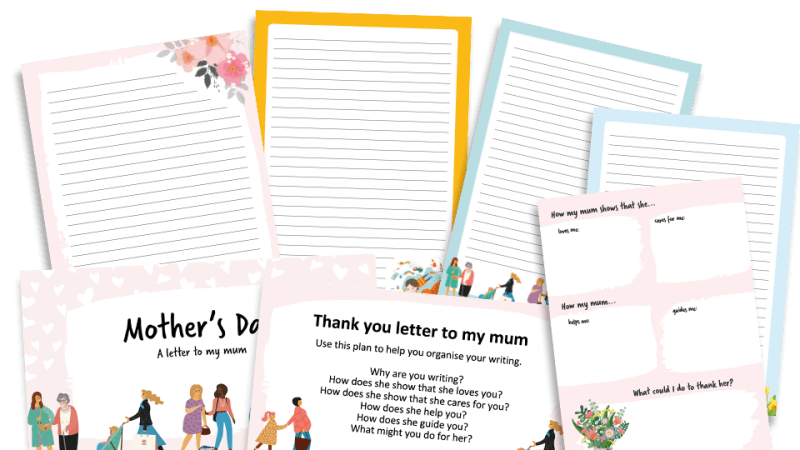P4C – how to use philosophy for curriculum design

Disconnected topics getting you down? Try these planning ideas for a more cohesive approach

- by Jonathan Lear
- Award-winning teacher, education consultant and author Visit website

I know this won’t be a popular opinion, but I’ve always secretly liked planning. I’ve never admitted this before because I think it’s probably one of the things that we’re expected to feel deeply unhappy about as teachers, but I’ve always found the process – and in particular, the planning of topics – to be up there in my top five of teachery things to do.
A topic-based or thematic approach has been part of primary teaching for as long as I can remember, and I really hope it continues. Admittedly, when done badly, it can become a blur of tenuously connected subjects that all merge into one.
Done well though, each distinct subject discipline is allowed to shine, and otherwise isolated subjects are integrated into a cohesive whole.
I think the appeal of planning a topic is that you can be a bit creative, and when you’re finished, you can bask in the warm glow that comes from having created something interesting and exciting that will engage and motivate your children.
I’ve never met anyone who doesn’t want motivated learners, but over time, I’ve had a sneaking suspicion that this process might be more about me than it is about the class.
I’d come up with the ideas and make the connections; I’d be the one with the gel pens and spider diagram; and when it was all done and dusted, I’d deliver it to the kids – the passive recipients of my brilliance.
I suppose this bothered me because I wanted more than just engagement and motivation. What I really wanted was for the children to have some ownership; the ability to shape the context of their learning rather than having to follow a path that I’d set.
Philosophy in primary schools
It turned out that the seeds of a solution to this problem were already present in our curriculum. We’d been doing something called Philosophy for Children (P4C) for a couple of years, and while it was a bit of an add-on, we’d noticed that it was having an impact.
If you’ve not come across it before, it’s essentially a means of bringing teachers and children together to discuss stuff that matters. Pupils take part in a philosophical enquiry that is shaped by the concepts and questions that interest them the most.
Our kids really liked it – the teachers did too – and it was definitely having a positive effect on the children’s thinking and oracy.
The idea of using this approach more broadly hadn’t really occurred to me at the time, but the more I thought about it, the more I realised that the use of philosophical concepts could play a significant role in creating a curriculum that was not just cohesive, but also had children at the heart of the process.
Topic-based planning
Before exploring the shift, let’s have a quick look at the process involved in the planning of a traditional topic. The starting point would be the curriculum content.
Let’s say you’re in Y6 and looking to cover the bit of National Curriculum geography that includes volcanoes and earthquakes – natural disasters.
The first step would be to come up with some fancy topic name; maybe something like ‘The force of nature’. With this established, you’d then immediately start looking for connections across the curriculum.
In science this might focus on forces; in English, the go-to genre of non-chronological reports, possibly diary entries, maybe even journalistic writing.
You could search out a couple of pictures to use with the children in art that showed the power of nature, or maybe start gathering old newspapers for some kind of papier-mâché volcano.
The final stage of this process would involve thinking up an outcome – something the children might produce or a way of sharing what they’d been up to.
The approach we took with our new concept-based model began in exactly the same place – with curriculum content. Having established this, rather than starting with the whole cross-curricular links business, we began to think about which philosophical concepts we might be able to explore with the children through that particular bit of curriculum.
If we stick with the same example I described earlier, this would mean thinking about volcanoes, earthquakes and natural disasters. To make the process easier, we used a bank of around 70 concepts we’d collected from P4C – including things like faith, change, class, consent, integration, wisdom and tradition – and took three or four concepts to form the starting point for our new philosophical enquiry-based project.
So, let’s say these were adversity, resilience, fear, and community. Instead of the literal links that are central to a topic-based approach, you can use these concepts to do a similar but much more interesting job.
In English, for example, rather than struggling to find a high-quality text that links to volcanoes or earthquakes, you could go for any book that explores one or more of the concepts.
In Y6, you might choose Kensuke’s Kingdom by Michael Morpurgo, or A Long Walk to Water by Linda Sue Park – both of which deal with adversity and resilience and can therefore form part of our project.
There’s also an opportunity to include the areas that often don’t fit into topics as easily as others. What about RE or PSHE? Given the nature of these subjects, they’re ready-made for a philosophical approach.
When you’ve used use the concepts to create connections with different subjects, the final stage of the process is to create a way in for the children – a starting point.
This comes in the form of an enquiry question. A big, philosophical question that frames the concepts we’re going to explore. For the concepts above, you could go for something like: ‘Does adversity always make us stronger?’
Enquiry-based learning
The fact that this represents the starting point is really important. Up to now, the teacher has selected the concepts, used them to make connections, and then wrapped them up in an enquiry question – in terms of child involvement or ownership, you’re no better off than you would be with a topic.
The key difference however, is in what happens the moment the project begins; the enquiry question is deliberately designed to encourage more and more questions as the project develops.
Pupils’ thoughts and ideas are collected and added to project walls – they’re valued – and there may be certain concepts that the children become more interested in than others, which can be dropped or added, and their questions can be woven into the planned curriculum.
You’re not relinquishing control of the learning, but allowing the children to shape the context. The feeling of ownership that this gives them is huge, and it turns out that when given the opportunity, young people have some fascinating insights into the world and some incredibly important things to say.
Jonathan Lear is a deputy headteacher, speaker and associate of Independent Thinking. He has written two books: Guerrilla Teaching and The Monkey-Proof Box: Curriculum design for building knowledge, developing creative thinking and promoting independence.










